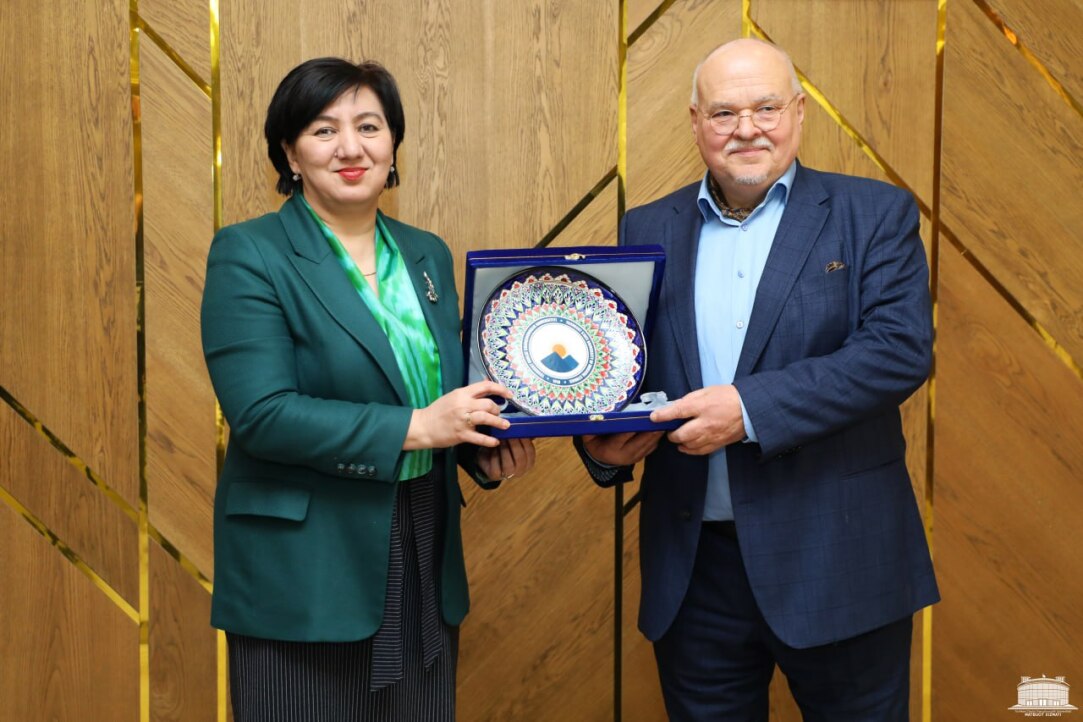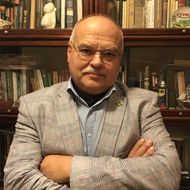Experts in Asian and African Studies from HSE University-St Petersburg Develop Cooperation with Uzbek Universities
A delegation from HSE University-St Petersburg headed by Evgeny Zelenev, Director of the Institute of Asian and African Studies, has visited the Tashkent State University of Oriental Studies (TSUOS). The meeting marked a new stage of cooperation development between the leading educational institutions in Russia and Uzbekistan.

HSE University is actively enhancing its cooperation with Uzbek universities in several areas. In 2022, a delegation from HSE University-St Petersburg headed by Anna Tyshetskaya, director of the campus, visited four leading universities in the republic. During the trip, they reached agreements on implementing joint projects in the sphere of research and academic activities. One of the key directions is Asian and African studies, with the main partner being TSUOS, the largest centre of modern and classical Asian and African studies in Central Asia.

Evgeny Zelenev
Director of the Institute of Asian and African Studies
The history of the development of Asian and African studies in Russia and Uzbekistan goes back a long way, to when both peoples lived in one state. However, more than 35 years of independent development led these two educational and research traditions to a qualitatively new state both in terms of the content of educational and research activities and international cooperation. In 2022, the life-changing visit by representatives of the Institute of Asian and African Studies at HSE University-St Petersburg initiated a multi-layered partnership between two centres: the Institute of Asian and African Studies and TSUOS.
An important result of the visit by the HSE University-St Petersburg delegation to Tashkent in 2022 was a detailed road map. The document was drawn up by Evgeny Zelenev, Director of the Institute of Asian and African Studies, and Kakhramon Khakberdiev, Director of the Centre for the Research and Analysis of the Eastern Countries Development at TSUOS. The road map reflects the main topics of multifaceted university cooperation. Among them are studying the 'soft power' strategies of Asian and African countries, holding seminars to exchange experiences of teaching Eastern languages, using artificial intelligence technologies in Asian and African studies, the humanities, and social and political sciences, as well as increasing the opportunities for academic mobility for students and continuing professional development for faculty. The visit by the St Petersburg delegation to Tashkent in March 2025 was a new step in implementing the road map.
The Russian delegation, which apart from Prof. Evgeny Zelenev included associate professors Elena Soboleva and Maria Soloshcheva, held official negotiations with the administration of the Tashkent University of Oriental Studies. They spoke with Gulchehra Rikhsieva, Rector of TSUOS, Durbek Sayfullaev, Vice-Rector for Scientific Affairs and Innovations, and Nodir Abdullayev, Vice-Rector for Academic Affairs and International Cooperation, about the creation of mirror laboratories which will use artificial intelligence to aid research in the field of Asian and African studies. The key goal of the international research initiative is to prepare a fundamental multi-authored monograph in English titled Soft Power: Beyond the West. The project has already brought together representatives of research communities from India, Iran, Armenia, China, and several other countries.

Theoretical and methodological approaches to studying the soft power of non-Western countries were discussed during a scientific seminar. Among the speakers were Evgeny Zelenev, Elena Soboleva, and Maria Soloshcheva. TSUOS was represented by Prof. Kakhramon Khakberdiev and associate professors Sukhrob Buronov, Ravshan Goziev, and Oqiliddin Alimov.
'The round table brought out both common positions and certain differences of scientific opinions on one of the most significant issues on the global agenda: how to develop peaceful forms of collaboration, including public diplomacy and how to avoid acute inter-state conflicts,' recaps Prof. Evgeny Zelenev.
The members of the HSE University-St Petersburg delegation also visited the Confucius Institute at TSUOS, which was founded in 2004 and was one of the first such centres in the world. During the meeting with Saodat Nasirova, director of the institute, HSE University-St Petersburg's experts in Asian and African studies shared their experience of teaching Chinese and identified possible areas of joint work for sinologists from the two universities.
HSE University-St Petersburg also has partnerships with Uzbek universities in terms of applied research. For example, the Laboratory for Management in Culture and Tourism implements a joint project with Samarkand State University Named after Sharof Rashidov. Titled 'Integrated Platform Solutions for the Preservation and Promotion of Cultural Heritage (cases of Samarkand and St Petersburg),' the project's first results were presented at the VIII International Forum of Guides in Tashkent in February 2025.
Another important direction of cooperation with Uzbek universities is educational projects. In 2023, HSE University held the International Summer School in St Petersburg for students of Tashkent State University. There are around 700 students from Uzbekistan at HSE, and the university welcomes dozens of exchange students, PhD interns, and early-career scientists every year. Along with Asian and African studies, the most popular areas are business management, economics, social sciences, media communications, and international relations.

